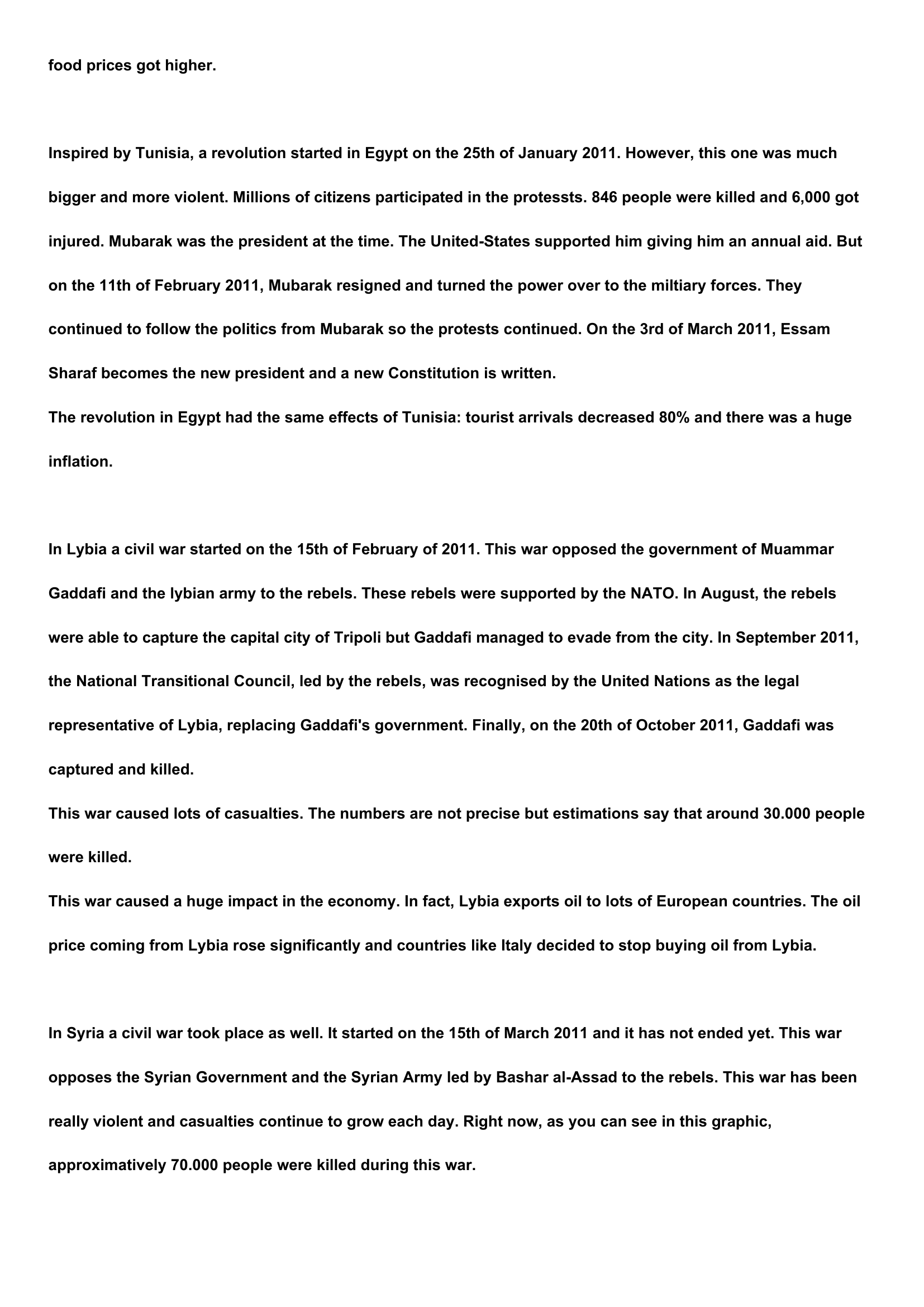Arab Spring
Publié le 25/03/2014

Extrait du document
«
food prices got higher.
Inspired by Tunisia, a revolution started in Egypt on the 25th of January 2011.
However, this one was much
bigger and more violent.
Millions of citizens participated in the protessts.
846 people were killed and 6,000 got
injured.
Mubarak was the president at the time.
The United-States supported him giving him an annual aid.
But
on the 11th of February 2011, Mubarak resigned and turned the power over to the miltiary forces.
They
continued to follow the politics from Mubarak so the protests continued.
On the 3rd of March 2011, Essam
Sharaf becomes the new president and a new Constitution is written.
The revolution in Egypt had the same effects of Tunisia: tourist arrivals decreased 80% and there was a huge
inflation.
In Lybia a civil war started on the 15th of February of 2011.
This war opposed the government of Muammar
Gaddafi and the lybian army to the rebels.
These rebels were supported by the NATO.
In August, the rebels
were able to capture the capital city of Tripoli but Gaddafi managed to evade from the city.
In September 2011,
the National Transitional Council, led by the rebels, was recognised by the United Nations as the legal
representative of Lybia, replacing Gaddafi's government.
Finally, on the 20th of October 2011, Gaddafi was
captured and killed.
This war caused lots of casualties.
The numbers are not precise but estimations say that around 30.000 people
were killed.
This war caused a huge impact in the economy.
In fact, Lybia exports oil to lots of European countries.
The oil
price coming from Lybia rose significantly and countries like Italy decided to stop buying oil from Lybia.
In Syria a civil war took place as well.
It started on the 15th of March 2011 and it has not ended yet.
This war
opposes the Syrian Government and the Syrian Army led by Bashar al-Assad to the rebels.
This war has been
really violent and casualties continue to grow each day.
Right now, as you can see in this graphic,
approximatively 70.000 people were killed during this war..
»
↓↓↓ APERÇU DU DOCUMENT ↓↓↓
Liens utiles
- PRINTEMPS NOIR [Black Spring]. Henry Miller
- LAMIYAT AL-ARAB
- Arab-Israeli Conflict - history.
- Chatt al-'Arab.
- Arab Music I INTRODUCTION Umm Kulthum Egyptian singer Umm Kulthum was revered throughout Egypt, North Africa, and the Near East for her powerful voice and improvisational skill.


